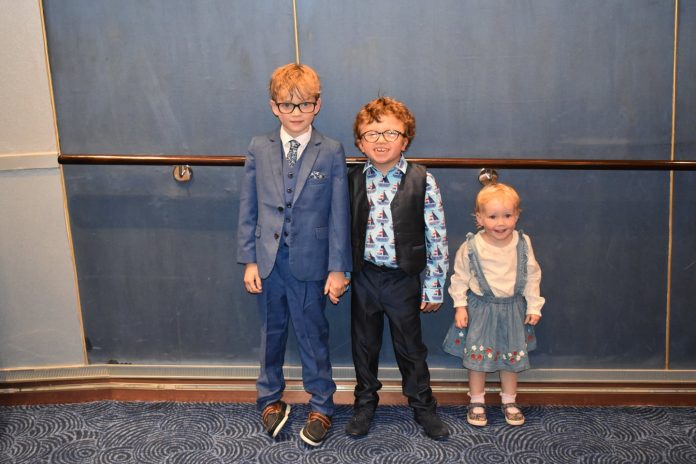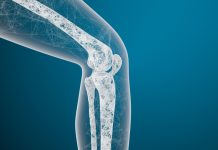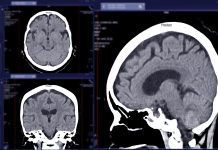Katie Ballard, a trustee of the Noonan Syndrome Association, shares her story of son Benjamin after receiving a life-changing diagnosis of Noonan Syndrome and cardiomyopathy
Parenting a child with a heart condition is no easy feat – but up and down the country, there are parents steering their poorly children through medical appointments, therapy and everyday life. Their care and treatment is down to funded medical research – which Katie and Toby Ballard are passionate about highlighting and gaining support for.
Benjamin was their first child, born in 2010 and shortly after his birth they had the diagnosis of both Noonan Syndrome and cardiomyopathy.
Whilst other new mums were arranging coffee catch-ups, meeting at playgroups and popping to the health visitor for weigh-ins, Katie was working her way through weekly medical appointments and tests, running spreadsheets to collect her son’s readings so she knew his stats at any given time.
Katie said: “Parenting a baby with a heart condition is like science – tests, stats, data ranges, interventions to get the numbers back to where they need to be.
“But this was my first baby and I didn’t know anything else – it was only when Henry came along, then Bonnie after that, when I realised how hard it had all been and that babies were relatively straight-forward!”
It’s not just the medical appointments – a child being frequently sick brings with it, more washing, less flexibility for going out, plus Katie had to give up her job to care for him to allow for the stress of night-feeding and medical appointments.
Then there is the judgement – cardiac babies are often hot, so Katie faced being told she didn’t have enough clothes on her baby by well-meaning bystanders, unaware of the unseen health issues.
As he got older, he wasn’t mobile and so was in a pushchair when other children his age had discarded them having found their freedom. Too small for a wheelchair, Katie often had comments or looks about her ‘big boy’ in a pushchair.
Life goes on
But Benji’s condition and health issues didn’t stop them from enjoying life – during his first year, they travelled to five different countries across Europe, filling their suitcases with medical equipment and milk instead of clothes to enable them to continue his care on the move. Katie’s spreadsheets made sure she knew if a problem was coming and help was on standby should they need it.
Planning was essential but something Katie had become used to.
When Benji was born, Katie’s priority for the next year was to help him to gain weight – but with him constantly being sick, a symptom of the Noonan Syndrome, this was easier said than done. He was NG-fed, but as fast as he was being fed, he was losing it through vomiting, meaning the couple had to feed their son throughout the night to make up for what he’d lost in the day.
His condition meant that his heart was hungrily using up all his energy and so calorie-rich food was needed to top him up; but the richer it was, the more likely it was to make him sick and so the cycle went on.
Benji didn’t put on any weight for six months – and so the 11lb baby she gave birth to was still a tiny bundle as he neared his first birthday; another characteristic of Noonan Syndrome. As a nine-year-old, he often gets confused for a much younger child, spoken to much younger than his years which he does sometimes find frustrating.
Katie doesn’t complain though – she is keen to look to the future, to ensure more research is funded and carried out, because it was international research that kept Benji alive.
“International research had shown that Beta Blockers were effective in helping a child gain enough strength and level of health to undergo heart surgery.
“At that time, organ donation was opt-in and a transplant is a huge risk – plus there is a very small supply of little hearts available.
“But the beta blockers helped to build him up and from the ages of two to five, he was out of heart failure.”
Heart surgery
Benji was five when he had the open heart surgery – a 7-hour operation at Evelina Children’s Hospital. But it was only possible due to previous research and understanding of the heart – and Katie’s rally cry is for more research funding through donations and fundraising.
She said: “Medical research has without a doubt, helped Benji to not only survive, but thrive and the future will be shaped for him and many others like him, by research, but it has to be funded.
“Donations or fundraising for the Noonan Syndrome Association helps to fund this research which benefits the families we support and many more beyond too.”
Society is Katie’s second agenda item – because we need a seismic shift in how we consider disabled people or people with medical conditions in the workplace and within our communities.
She’s saddened about Benji’s future if he is to be written off, when she knows he could be capable of independent living and employment one day.
She said: “He touches the heart of everyone he meets – people never forget him, for his kindness, his caring side, he’s very funny and loves to be around people.
“We want him to have high aspirations, to live independently, to work, volunteer, whatever that is – to have a purpose in helping other people.
“He has constraints around what that will be, but I do fear that his biggest constraint will be society’s acceptance of him and willingness to write him off before they’ve found out his capabilities and that upsets me.
“Adaptations can be made and support given but mindset is the thing that needs to be addressed – and giving people the opportunity.”
The Ballards have so far raised £30,000 for the Evelina Children’s Hospital but are now dedicating their time and resources to supporting the Noonan Syndrome Association and to push the boundaries of research into the syndrome.
Find out how you can fundraise or donate here: https://www.noonansyndrome.org.uk








